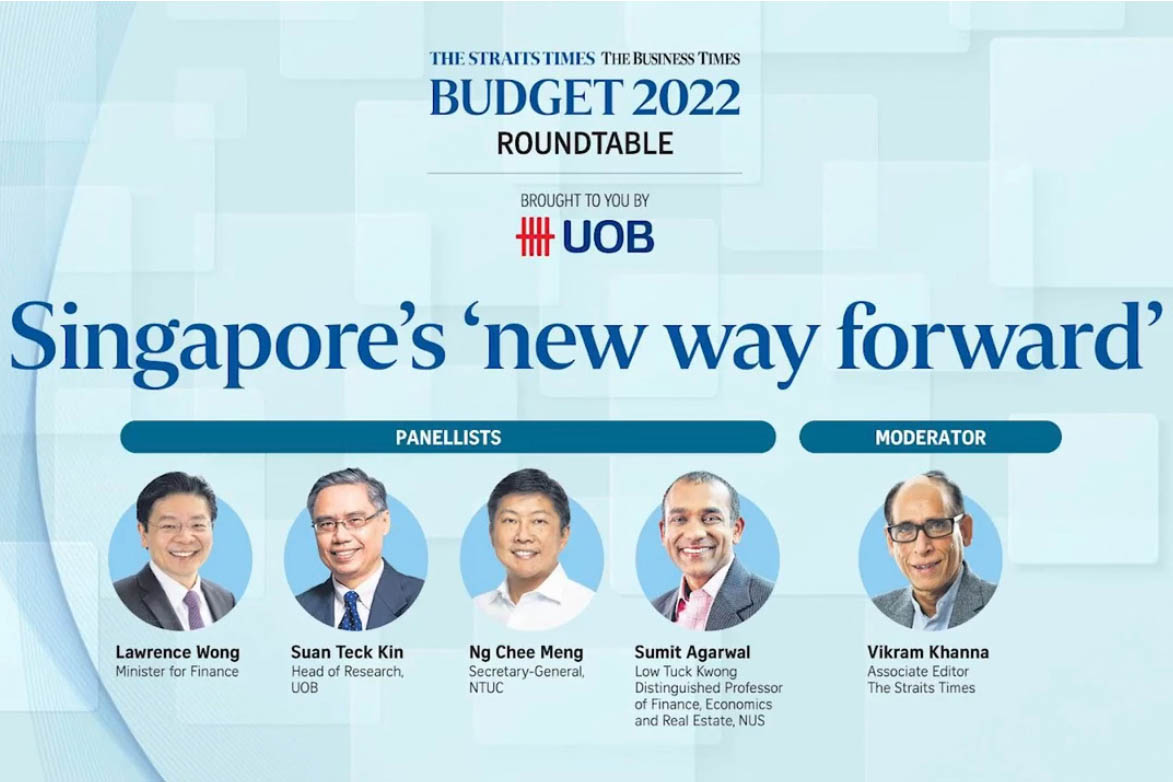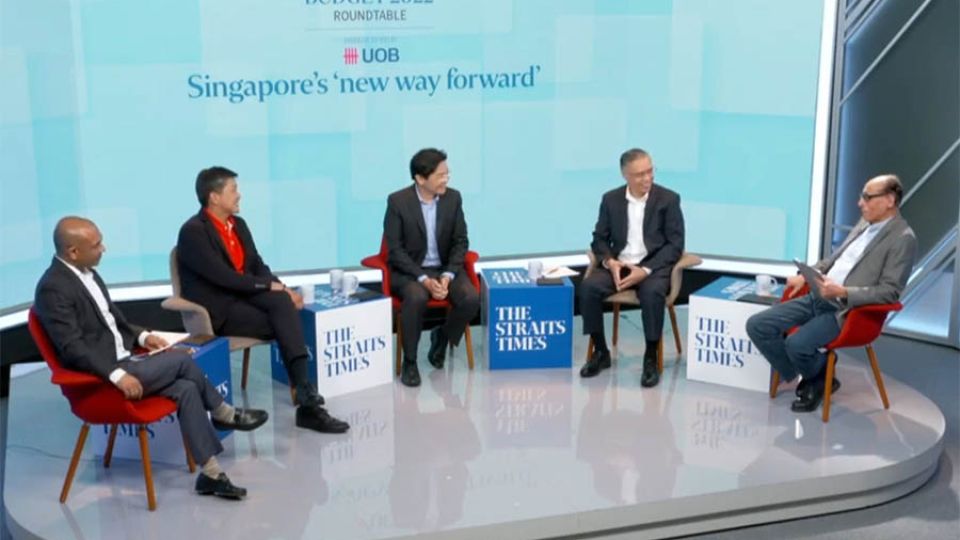March 17, 2022
SINGAPORE – Despite Singapore’s limited direct links with Russia and Ukraine, the conflict between the two countries could impact the global economy and, in turn, contribute to cost of living pressures, said panellists at a post-Budget 2022 roundtable organised by The Straits Times and The Business Times on Monday (March 14).
With uncertainty over how the three-week-long invasion by Moscow of its neighbour might pan out, questions remain over the degree of inflation to expect, they added, with one expert warning of “nefarious activities” by companies taking advantage of the global situation to engage in price gouging.
Finance Minister Lawrence Wong, one of the panellists, said the Government is monitoring the situation closely and would come up with additional measures if it worsens.
In his opening remarks, Mr Wong spoke of how Singapore would be confronting a post-pandemic future where a business-as-usual approach would no longer work. One reason for that is an increasingly unpredictable, volatile and dangerous world – a point brought into relief since Russia’s invasion of Ukraine in late February, he said.
Asked by moderator and ST associate editor Vikram Khanna about the conflict’s economic impact on Singapore, Mr Wong said: “These are still early days… I don’t think anyone can predict with any certainty the trajectory of how the conflict will evolve in the coming weeks or even months.”
He added: “As (we) have said before, if the situation were to worsen, we will be prepared to do more… and we have the means to do so.”
Mr Wong noted that the concern was over the impact on global energy markets, food supply and supply chains – with the two warring countries being major exporters of wheat and precious metals. This, in turn, could affect Singapore’s economy and inflation.
Trade and Industry Minister Gan Kim Yong has already warned that the crisis has clouded Singapore’s economic outlook, and with Europe heavily reliant on Russian gas transiting through Ukraine, escalating energy costs are fuelling a knock-on increase in prices of other products.
Retaliatory sanctions by major Western economies and their allies worldwide are also pushing up already elevated prices of fuels, grains and industrial metals.
Food importers, manufacturers and businesses here are starting to feel the effects and some have started raising prices. Last week on Monday, the most popular grade of petrol – 95-octane – breached the $3 mark after multiple rounds of increases since the war began.
Panellist and UOB research head Suan Teck Kin said the question was how high the inflation would go and at what point it would start eating into consumers’ and companies’ budgets and reducing economic activities.
Economics and finance professor Sumit Agarwal from the National University of Singapore flagged concerns that merchants exporting goods to Singapore could be taking advantage of the war by increasing prices.
“The fact of the matter is that the common man is bearing the brunt of cost of living pressures,” said National Trades Union Congress (NTUC) secretary-general Ng Chee Meng. “The taxi drivers, the private-hire drivers, the bus operators are suffering because of the fuel price increases. Our citizens, our workers are also telling me very clearly that chicken prices have gone up, egg prices have gone up.”
He said FairPrice supermarkets were doing their bit to help by providing discounts for the elderly and by setting a benchmark price across its goods.
Mr Wong described this as the flip side of Prof Agarwal’s call to watch for price gouging. “The majority of companies (are) very highly responsible, and in fact going out of their way to offer good value for money products and services – like the NTUC enterprises, FairPrice, and many others who will offer more house brands (and) help consumers stretch their dollar.”
He stressed that the Government had put in significant resources and funding in this year’s Budget to help households cope with rising prices, through the likes of a $560 million Household Support Package; a $6.6 billion package to soften the blow of an impending goods and services tax (GST) hike; and an enhanced GST Voucher scheme.
“When you pool it together for the individual in terms of cash, in terms of utilities rebates, in terms of CDC (Community Development Council) vouchers, in terms of the S&CC (service and conservancy charge) rebates, it’s a lot of money, it’s a lot of help,” said Mr Wong. “And we will do more to help people understand that this package of measures is going to come their way very soon.”



